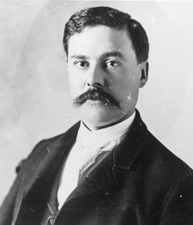Half the Sky: Turning Oppression into Opportunity for Women Worldwide, by Nicholas Kristof and Sheryl WuDunn (Knopf, 2009 and Vintage, 2010) was on my reading list after I watched a portion of the documentary on TV (worthy of its own review). I was also drawn to it out of my own feelings of frustration and passion. As someone who has recently been following and even engaged in feminist discussions of expanding the roles of women in patriarchal religious communities, I am struck by how firmly and stubbornly people hold onto their notions of traditional gendered roles, and then cling to their fears when those assumptions are challenged. I turned to Half the Sky as an outlet for my personal tensions—I wanted to study societies where misogyny is not cloaked in benevolent chauvinism, where the divide between women’s advancement and women’s oppression seem obvious and in need of clear-cut solutions. I wanted to invest my passions with the hope that there is a place where someone might make a true difference. What I found was that the questions and problems proposed in Half the Sky often brought me right back to the tensions close to home.
Half the Sky examines the worst forms of the oppression of women throughout the world, with a focus on “emerging nations,”—Cambodia, Kenya, Somaliland, India, Sierra Leone, Afghanistan, Vietnam, Pakistan, and Liberia (with a discussion of the United States as well!). These nations are traditionally patriarchal, but also on various stages of nascent economic development. Kristof and WuDunn argue that it is exactly because of that economic promise that makes the treatment of millions of women such a crisis, especially by keeping women, men and entire nations stunted by an embedded hatred of women. Indeed this is the great humanitarian crisis of the modern age. Through years of on-the-ground interviewing, reporting, and collecting data, Kristof and WuDunn have documented the most significant areas of women’s oppression: sex trafficking or forced prostitution, maternal mortality and fistulas, sexual violence, honor killings and beatings, Female Genital Mutilation (FGM), and economic slavery. In describing the many abuses against women, the tone of Half the Sky is at once raw, shocking, and honest, while also hopeful and affirming. Their solutions are relatively simple, and yet infinitely encouraging: progress in rural medicine, microfinance loans, economic independence for women, girls’ education, and local and global awareness coupled with concentrated fundraising. In telling these women’s stories, the authors have managed to maintain a tricky balance between dispassionate reporting and sympathetic honesty, without victimizing or over-sentimentalizing their subjects. Still, the accounts of such horrors as FGM are stark and frustrating reminders that it’s often women themselves who have accepted their own oppression, and then passed it down to their daughters and granddaughters.<!–more–>
The message of Half the Sky is distinctly anti-imperialist. The authors walk a fine line between cultural relativism—seeing women within the context of their own cultures and religions—and calling out gender oppression for exactly what it is—a human rights issue that transcends nationality and requires immediate attention. This can be a tricky balance. Kristof and WuDunn begin with some well-meaning western indignation, but then carefully keep their distance from hints of (m)paternalistic feminism. They are quite clear about this:
“‘Empowerment’ is a cliché in the aid community, but it is truly what is needed. The first step toward greater justice is to transform that culture of female docility and subservience, so that women themselves become more assertive and demanding. As we said earlier, that is, of course, easy for outsiders like us to say: We’re not the ones who run horrible risks for speaking up. . . .” (p. 53)
The authors overwhelmingly focus on the grass-roots efforts of women like Usha Narayane (India). She organized women in her neighborhood to stand up against the local crime boss who had terrorized them for years; and in a scene straight out of Murder on the Orient Express, the women confronted the mobster in court and took turns stabbing him and castrating him. Most of the stories are not so dramatic, and certainly not as vengeful, but just as compelling. These women—many empowered by education, and some who have escaped oppression themselves—are leading the way by rescuing prostitutes, establishing schools, teaching job skills, establishing maternity hospitals, and training nurses and midwives. Women like Soraya Salti (Jordan) who teaches business skills to high school girls; and Edna Adan (Somaliland), whose maternity hospital has significantly decreased maternal death rates; and Rana (Afghanistan), a prison director in Kabul, who purposefully keeps women incarcerated, just to protect them from their own families; Julienne Chakapewa (Congo), who provides counseling to rape victims, and Sunitha Krishnan, who works to fight sex trafficking in India. My favorite is someone included in the PBS documentary, but not in the book—Rebecca Lolosoli, who founded the Umoja Women’s Village in Kenya—a truly remarkable female-centered refuge for helping women to escape abuse in their families and villages. In all these cases, the women share the commonality of being agents for their own brand of change.
In researching the feminist impulses among traditional, patriarchal religions, I’ve found that women of those cultures bristle and push back—hard—against outsiders telling them that they’re oppressed and need to fight for change. I’ve even noticed that feminists within those cultures—while accepting the support of outsider feminists, still jealously cling to their own strategies of patient accommodation or incremental change. Half the Sky’s authors remain consistently sensitive and respectful to this same impulse among the women of their study, and acknowledge that usually “[t]he best role for Americans who want to help Muslim women isn’t holding the microphone at the front of the rally but writing the checks and carrying the bags in the back.” (p. 162)
In spite of the warnings against westerners hijacking grass-roots reform in developing nations, Americans from both sides of the political spectrum have been at times clumsily useful in enacting global change for women. The authors are most impressive in their attempts to reach out to Democrats and Republicans alike, and to make the empowerment of women a bipartisan and universal issue. Both secular liberals and religious conservatives are lauded for their well-meaning efforts at humanitarianism, in spite of periodic botched attempts; and both are chided for past misguided steps, cultural insensitivity, and for not cooperating on such important issues like international sex trafficking, abortion, and realistic solutions for AIDS prevention. But both liberals and conservatives are credited with immense financial and spiritual generosity, as well as sincere efforts to remedy past mistakes and to join forces—often quite successfully—in fighting malaria, repairing fistulas, and establishing schools. The authors even credit George W. Bush’s presidential initiative to fight AIDS as “the best single thing he ever did, arguably saving more than 9 million lives.” (p. 144)
So what lessons can be taken from Half the Sky? Compared to the relatively innocuous concerns of some western feminists, the problems described by Kristof and WuDunn boil down to simply “educating women and keeping them alive.” Indeed, after reading about women and girls who are murdered, beaten, punished for education, sold, silenced and raped on a daily basis, I am sometimes left wondering about the significance of my own concerns. (#firstworldproblems!) Still, engagement with larger, urgent, and critical issues for women should not make us retreat from the seemingly smaller ones. Because rape culture is still rape culture, whether it takes place in a slum in Kolkata, or at a weekend high school party in America. Because objectifying and hijacking female childhood is still that, whether it is kidnapping 12-year Cambodian girls into prostitution or sexualizing 12-year-old girls on American television; because domestic violence is just that, whether in Addis Ababa or in Alabama; because disenfranchising women is just that, whether it is accompanied by violence and terror, or the softened sexism of putting women on a pedestal. But I need to be fair here: As much as feminists bristle against it, a little chivalry might go a long way toward relieving female oppression, especially in cultures where women and girls are dehumanized to the point of lacking even basic rights to life, education and security. The issues are complex and without any easy solutions. Still, any separationist rhetoric, taken to extremes, can lead to more sinister forms of exclusion and discrimination. So much is at stake here, in terms of human rights, foreign relations, and global economic growth, because “[c]ountries that repress women also tend to be backward economically, adding to the frustrations that nurture terrorism.” (p. 159) Indeed, the final conclusion is that “the best clue to a nation’s growth and development potential is the status and role of women.” (p. 160). Half the Sky will either change you completely or it will reinforce your passion and refocus it into more urgent directions, as it has done for me.
Andrea G. Radke-Moss is a professor of history at Brigham Young University-Idaho in Rexburg, teaching American and women’s history. She has published on women in higher education, Mormon women, women in the American West, and women’s World’s Fairs experiences. She blogs at the Mormon history blog, Juvenile Instructor.
This post is part of the April Social Justice Book Club. This week we are discussing Half the Sky: Turning Oppression into Opportunity for Women Worldwide by Nicholas D. Kristof and Sheryl WuDunn.The Social Justice Book Club is a project of Independence Rock Group: Center for Faith, Ethics, and Social Justice. Please consider supporting the Social Justice Book Club and our other projects. Find other posts about the Book Club and Half the Sky here.











